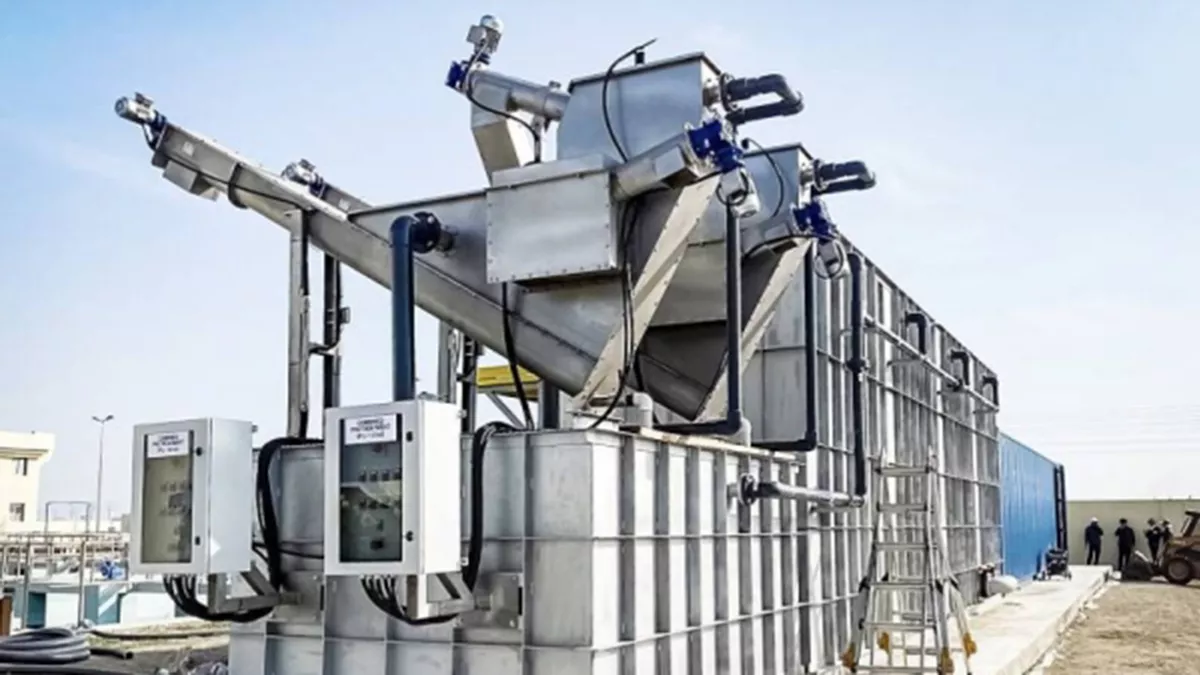
The first of its kind in the Kingdom, a decentralized wastewater treatment and reuse unit invented at King Abdullah University of Science and Technology (KAUST) has been installed in Rabigh, Saudi Arabia. The technology features the research of Environmental Science and Engineering Professor Pascal Saikaly and Dr. Muhammad Ali, a former research scientist at KAUST and currently an assistant professor at Trinity College Dublin.
The scientists are founders of Al-Miyah Solutions, a KAUST spin-off company specializing in decentralized water recycling technologies. The Al-Miyah mobile and “plug and play” modular technology will efficiently treat and convert wastewater into reusable water for areas not connected to the centralized sewer network. The deployment of the first full-scale unit at the NWC Wastewater Treatment Plant (WWTP) in Rabigh is the fruit of the team's five-year research effort in the Water Desalination and Reuse Center (WDRC) at KAUST, and partnership with KAUST Innovation and local partner National Water Company (NWC).
Conventional biological wastewater treatment plants use microorganisms in the form of small, suspended aggregates referred to as bio-flocs to break down and remove pollutants such as ammonium and phosphate in the wastewater. Before discharge, the treated water must be separated from the bio-flocs in a separate tank, which consumes a large area. About 40% of households in the Kingdom don't have access to a centralized sewer network. The wastewater generated from these households is collected and transported to centralized wastewater treatment plants by trucks, which is costly and contributes to many issues like traffic congestion, pollution and greenhouse gas emissions.
The Al-Miyah scientists conceived a novel way to address these problems. Their technology uses an aerobic granular sludge (AGS) process to enrich the microorganisms to form large, suspended aggregates, or bio-granules, that can more efficiently and easily be separated and removed from the treated water in a single tank, producing water of reliable quality while achieving a significant reduction in space footprint and savings in operational and capital costs compared to systems based on bio-flocs. This approach is combined with a gravity-driven membrane (GDM) filtration system and ultraviolet light to produce clean water for non-potable reuse applications such as irrigation, horticulture and industry.
In addition to contributing to Saudi Vision 2030 by increasing water reuse and improving environmental quality, the KAUST-owned decentralized wastewater technology expects to deliver a recognizable impact by supporting the population in unserved areas in the Kingdom with new jobs.
